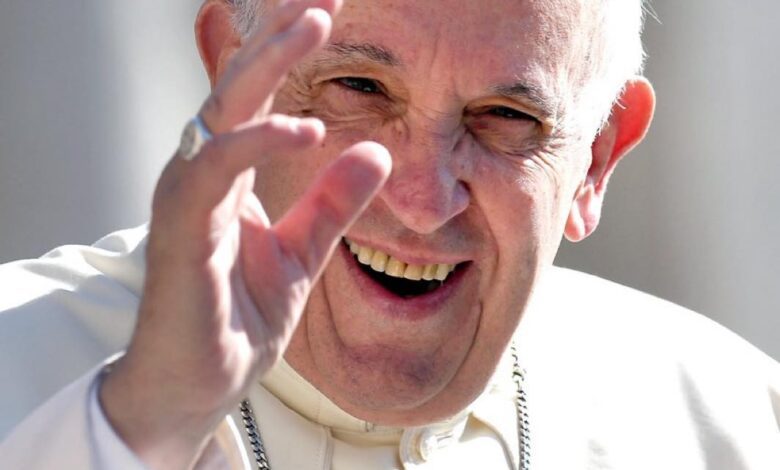Five Cardinals That Are Likely To Be The Next Pope

Papabile is an unofficial Italian term first coined by Vaticanologists and now used internationally in many languages to describe a Catholic man in practice always a cardinal, who is thought a likely or possible candidate to be elected Pope.
Five Cardinals That Are Likely To Be The Next Pope
Here are 5 Cardinals who have been topping the betting markets as potential candidates for the papacy:
1. Cardinal Peter Erdo
Cardinal Peter Erdo is known for his deep commitment to the Catholic Church and has been actively involved in various aspects of Church leadership and governance. Peter Erdo was born on June 25, 1952, in Budapest, Hungary. He studied at the Pontifical Gregorian University in Rome, where he earned a doctorate in theology. Erdo was ordained a priest in 1975 and served in various pastoral roles before being appointed as the Bishop of Szekesfehervar in 1999.
In 2002, he was appointed as the Archbishop of Esztergom Budapest, the highest-ranking Prelate in Hungary. Pope John Paul II elevated Erdo to the rank of cardinal during the consistory of October 21, 2003. As a Cardinal, Erdo participated in the papal conclave that elected Pope Benedict XVI in 2005 and Pope Francis in 2013. In addition to serving as the Archbishop of Esztergom Budapest, Erdo has held various leadership positions within the Catholic Church.
He has been a member of several Vatican congregations and councils, including the Congregation for the Doctrine of The Faith and the Pontifical Council for Social Communications. Cardinal Erdo has been actively involved in promoting dialogue and cooperation among European Catholic Bishops. He served as the President of the Council of the Bishops’ Conferences of Europe from 2006 to 2016, advocating for the Church’s role in European society and addressing various social and political issues.
Erdo was also known for his scholarly contributions to theology and pastoral ministry. He has authored numerous articles and publications on topics ranging from ecclesiology to bioethics.
2. Luis Antonio Tagle
Luis Antonio Tagle was born on June 21, 1957, in Manila, Philippines. He studied Philosophy and Theology at Ateneo da Manila University and later earned his doctorate in Sacred Theology from the Catholic University of America in Washington. Tagle was ordained a priest in 1982 and served in various pastoral and academic roles in the Philippines.
In 2001, he was appointed as the Bishop of Imus, a diocese in the province of Cavite Philippines. In 2011, he was elevated to the rank of Archbishop of Manila, becoming the highest-ranking Catholic Prelate in the Philippines. Pope Benedict XVI elevated Tgale to the rank of Cardinal during the consistory of November 24, 2012. As a Cardinal, he participated in the Papal Conclave that elected Pope Francis in 2013.
In 2015, Pope Francis appointed Cardinal Tagle as the Prefect of the Congregation for the evangelization of peoples, a key Vatican department responsible for coordinating missionary activities and promoting evangelization worldwide. This appointment made Tagle one of the most influential Filipino figures in the Vatican. Throughout his career, Cardinal Tagle has been known for his pastoral approach and commitment to engaging with people at the grassroots level.
He has been actively involved in various Initiatives aimed at addressing poverty, inequality and other social issues both in the Philippines and globally.
3. Pietro Parolin
Pietro Parolin was born on January 17, 1955, in Schiavon, Italy. He studied at the Seminary in Vicenza and later at the Pontifical Gregorian University in Rome where he earned a doctorate in Canon Law. Parolin was ordained a Priest in 1980 and served in various diplomatic roles within the Vatican’s diplomatic service, known as the Holy See’s Diplomatic Corp. He served in diplomatic missions in Nigeria and Mexico and worked in worked in the Vatican’s Secretariat of State.
READ MORE: How a Pope Is Buried: The Step-by-Step Process Explained
In 2009, Pope Benedict XVI appointed him as the Apostolic Nuncio to Venezuela. And in 2013, Pope Francis appointed him as the Secretary of State, the Vatican’s highest ranking official after the Pope himself. Pope Francis elevated Parolin to the rank of Cardinal during the consistory of February 22, 2014. As the Vatican Secretary of State, Cardinal Parolin plays a crucial role in overseeing the Vatican’s diplomatic relations with other countries, managing the Roman Curia, the central administration of the Catholic Church, and advising the Pope on matters of governance and policy.
He’s involved in addressing various global issues, including diplomatic initiatives, peace-building efforts, and interfaith dialogue. Cardinal Parolin has been actively involved in diplomatic efforts to promote peace and dialogue in various regions of the world, including conflicts in the Middle East, Africa, and Asia. Cardinal Pietro Parolin’s leadership and diplomatic skills have made him a key figure within the Vatican and a prominent representative of the Catholic Church on the global stage.
4. Peter Turkson
Peter Turkson was born on October 11, 1948, in Wassaw Nsuta, Ghana. He studied at St. Teresa’s Minor Seminary in Amisano and later at St. Peter’s Seminary in Pedu, where he earned a bachelor’s degree in Sacred Theology. He continued his studies at the Pontifical Biblical Institute in Rome, where he obtained a licentiate in Sacred Scripture and later earned a doctorate in Sacred Theology from the Pontifical Gregorian University.
Turkson was ordained a priest in 1975 and served in various pastoral and academic roles in Ghana. In 1992, he was appointed as the Archbishop of Cape Coast, Ghana, and later served as the President of the Ghana Catholic Bishops Conference. Pope John Paul II elevated Turkson to the rank of Cardinal during the consistory of October 21, 2003. Cardinal Turkson has held several leadership positions within the Vatican. He served as the President of the Pontifical Council for Justice and Peace from 2009 to 2016, where he focused on issues of human rights and global development.
He has also been involved in various Vatican commissions and councils. Cardinal Turkson was considered a Papa contender during the Papa Conclave that elected Pope Francis in 2013. While he did not become Pope, he remains a respected figure within the Catholic Church. Turkson has been actively involved in addressing global issues, including poverty, inequality, and environmental stewardship. He has represented the Vatican in international forums and has advocated for the Church’s positions on social and ethical issues.
5. Cardinal Christoph Schonborn
Cardinal Christoph Schonborn’s life is a testament to his unwavering dedication to faith, intellect, and service. Born into a noble Austin family in 1945, Schonborn’s path to the priesthood was marked by a deep seated commitment to the Catholic Church. After pursuing theological studies and earning a doctorate in theology, he was ordained a priest in 1970, laying the foundation for a lifelong journey of spiritual leadership and scholarship. Schonborn’s rise within the Catholic hierarchy was meteoric.
In 1995, he was appointed Archbishop of Vienna, a position he has held with distinction ever since. As the leader of one of Europe’s most influential archdioceses, Schonborn has championed a variety of causes, earning him widespread respect both within and beyond the Catholic community. His tenure has been characterized by a tireless dedication to Pastoral care as well as a steadfast commitment to engaging with contemporary issues in light of Catholic teachings.
Among his many accomplishments, Schonborn is perhaps best known for his role as a leading intellectual within the Church. A prolific author and speaker, he has tackled complex theological topics with clarity and insight, making them accessible to a broad audience. His efforts to bridge the gap between faith and reason, particularly in the context of science and religion, have earned accolades from scholars and believers alike. Throughout his life, Cardinal Christoph Schonborn has embodied the values of compassion, integrity, and humility, leaving an indelible mark on the Catholic Church and the world at large.
Source: Church Gist









